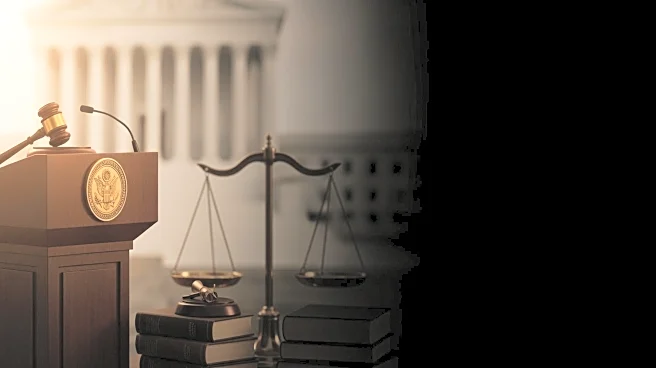What's Happening?
The Supreme Court is hearing a case that challenges Louisiana's congressional map, which added a second Black-majority district. Critics argue that the map overly emphasizes race, violating the 14th and
15th Amendments. Louisiana, with a 30% Black population, initially defended the map but now contends that the Voting Rights Act's redistricting provisions are discriminatory. The case could impact the last significant provision of the Voting Rights Act, affecting minority representation.
Why It's Important?
The decision could reshape how states approach redistricting, potentially reducing minority representation in legislative bodies. This would likely benefit Republicans, as Black voters predominantly support Democrats. The case could set a precedent for future redistricting efforts, influencing how states draw electoral maps and potentially altering the balance of power in Congress and state legislatures.
What's Next?
The Supreme Court's ruling could lead to changes in redistricting practices, with potential legal and political repercussions. Civil rights groups and political parties will likely respond to the decision, advocating for policies that protect minority representation. The case will be closely monitored by stakeholders, given its potential to reshape electoral boundaries and influence future elections.
Beyond the Headlines
The case underscores the tension between race-conscious policies and constitutional principles of equal protection. It raises broader questions about the role of race in public policy and the ongoing struggle for racial equality in the U.S. The decision could influence discussions on race-related issues beyond electoral politics, affecting areas like education and employment.











